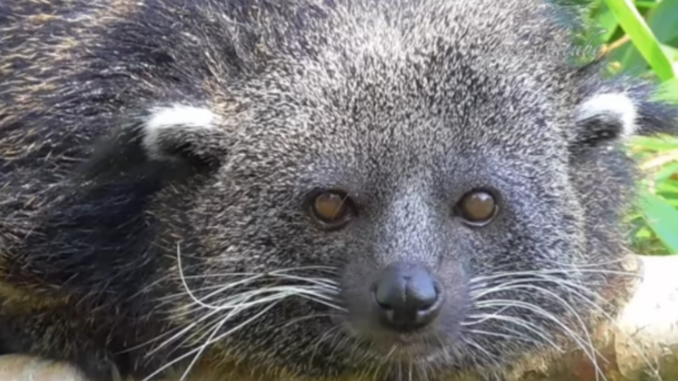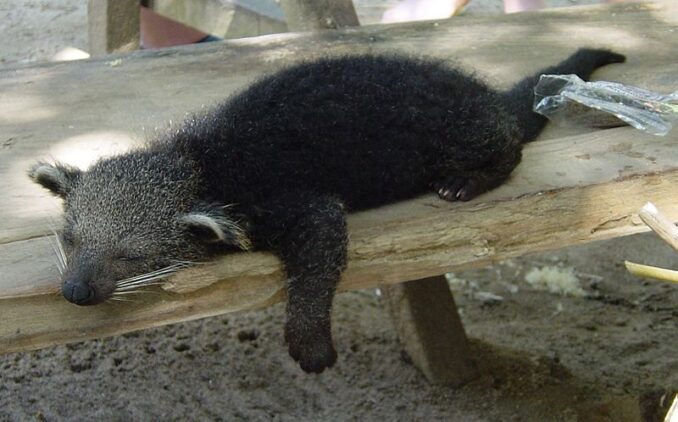
If you ever find yourself trekking through the forests of Southeast Asia and you smell popcorn, you’ve found the domain of the binturong (Arctictis binturong), also known as the bearcat. Arctictis means ‘bear-weasel’, derived from Greek.
We may as well be upfront and candid about a few facts; the binturong is in no way related to bears or cats, and they do not make popcorn so you’ll have to bring your own. They do, however, have musk glands that create a chemical that smells just like popcorn which they use to mark their territory. This chemical compound (2-acetyl-1-pyrroline) is identical to the compound created when certain foods are prepared at temperatures in the range of 140 to 165 °C (280 to 330 °F) such as cookies or popcorn. (In cooking, this is called the Maillard reaction).
Bearcats are small to medium-size mammals that spend most of their lives high in the tree canopy, and they prefer forestland on hills, or at least higher elevations, versus on the lowland plains. Unlike squirrels or monkeys they don’t jump from one tree to the next. Instead, they climb down from one tree and go climb up the next. They’ll eat just about anything, but they’re lazy and slow (and frequently confused with sloths) so they pretty much only eat meat if an easy opportunity arises. They’re just not going to chase down prey or fight anyone for it.

Females of the species are larger than the males. An adult typically is 2.5 to 3 feet long plus a tail which is nearly as long as head and body combined. They are threatened by habitat loss and forest degradation because of logging and other forest-clearing activity. In some countries they’re hunted for fur or meat. The ICUN lists the bearcat as vulnerable with a declining population.
“Binturong – Animal of the Week” (4:18):
Question Of The Night: How do you like your popcorn prepared?
